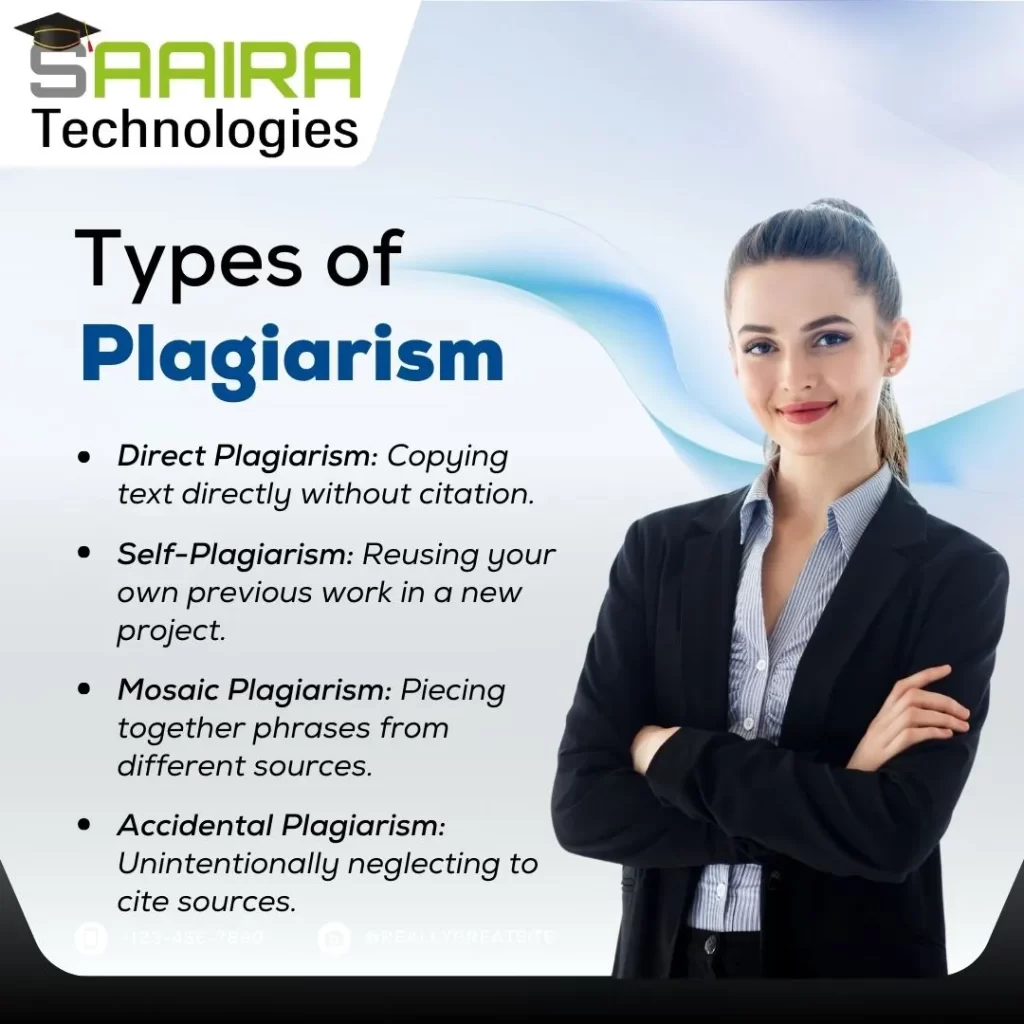What Is Plagiarism?
What Is Plagiarism? Understanding Its Meaning, Impact, and Prevention
In today’s world, plagiarism is a critical issue in both academic and professional circles. With the vast availability of information online, it’s easier than ever to access content from various sources. But it is crucial to know what plagiarism is, why it is important, and how to avoid it. This article examines what constitutes plagiarism, its various forms, its repercussions, and how to prevent it. You’ll know exactly how to produce and value original content by the end of this conversation.
Definition of Plagiarism
Plagiarism is the practice of passing off someone else’s words, concepts, or creative output as one’s own without properly citing the source. This can include words, phrases, concepts, data, or artistic works. In simple terms, plagiarism is a form of intellectual theft, where one person takes credit for another person’s intellectual property.
Types of Plagiarism
Understanding the different forms of plagiarism is essential for identifying and avoiding it. Here are some of the most common types:
Direct Plagiarism: copying someone else’s work verbatim without adding citations or quote marks.
Self-Plagiarism: Incorporating previously completed work into a new project without mentioning that it was previously submitted or published.
Paraphrasing Plagiarism: Rewriting someone else’s ideas without crediting the original source. Even if the words are changed, the core ideas still belong to the original author.
Mosaic Plagiarism: Piecing together phrases or ideas from different sources without proper attribution, creating a “mosaic” of various texts.
Accidental Plagiarism: Unintentionally using others’ work without giving proper credit. This can happen due to lack of knowledge or sloppy citation practices.

Why Is Plagiarism Considered Wrong?
Plagiarism is widely condemned for several reasons:
Ethical Violation: Plagiarism undermines honesty and integrity. It reflects poorly on one’s values and compromises trust.
Intellectual Property Rights: Ideas and creations are protected by intellectual property laws. Using them without permission infringes on the creator’s rights.
Academic Standards: In educational institutions, originality is crucial for fair assessments. Plagiarism disrupts these standards.
Professional Consequences: In workplaces, plagiarism can result in legal action, job loss, or damage to one’s professional reputation.
Impact of Plagiarism in Academic Settings
In academia, plagiarism is particularly frowned upon because it undermines the process of learning and academic growth. When students copy others’ work, they bypass the opportunity to learn and engage deeply with the material. Academic institutions enforce strict penalties, including grade deductions, failing courses, or even expulsion, for instances of plagiarism.
Consequences of Plagiarism in the Professional World
In professional settings, plagiarism can lead to severe repercussions. Companies invest significant resources into creating original content, from marketing materials to research. Copying content without permission can lead to lawsuits, financial loss, and damage to the brand’s image. For writers, researchers, and artists, plagiarism can be career-damaging, potentially blacklisting them from their industries.
How to Recognize Plagiarism
Spotting plagiarism can be challenging, especially with subtle paraphrasing or structural changes. However, there are several tools and strategies to help identify it:
Plagiarism Detection Software: Tools like Turnitin, Grammarly, and Copyscape compare content against large databases to flag similarities.
Comparing Original Work: Comparing submitted work with known sources can reveal direct matches.
Reviewing Citations: Inadequate citations or suspiciously perfect alignment with a known source may indicate plagiarism.
Best Practices for Avoiding Plagiarism
To maintain originality and uphold ethical standards, it’s essential to follow best practices:
Understand the Source: Take the time to read and digest material before attempting to rephrase or use it in your work.
Use Quotations: Put someone else’s exact words in quote marks and give credit where credit is due.
Paraphrase Carefully: Restate information in your own words, ensuring the structure and vocabulary are significantly different, and attribute the idea.
Cite All Sources: Whether you’re quoting or paraphrasing, always give credit to the original author.
Use a Plagiarism Checker: Run your work through plagiarism-checking tools to ensure its originality.
The Role of Citations in Preventing Plagiarism
Citations are crucial for attributing credit to original sources. They allow readers to trace ideas and verify information while ensuring that the author respects intellectual property rights. Citation styles like APA, MLA, and Chicago offer specific guidelines to ensure proper attribution.
The Legal Implications of Plagiarism
Plagiarism is not just an ethical issue; it can also lead to legal consequences. Authors, researchers, and companies can take legal action to protect their intellectual property. Penalties vary depending on the severity, from monetary fines to more severe punishments if the plagiarism results in significant financial or reputational harm.
How Technology is Fighting Plagiarism
With advancements in artificial intelligence, plagiarism detection has become more sophisticated. AI-powered tools can now detect even the most subtle forms of plagiarism, including paraphrased content and language modifications. These tools provide users with feedback on unintentional similarities, helping them revise their work to meet originality standards.
Conclusion
Plagiarism is a serious issue with far-reaching implications, from ethical and academic repercussions to legal and professional consequences. Understanding what plagiarism means, recognizing its various forms, and implementing best practices to avoid it are essential steps for anyone producing content. By practicing proper attribution and respecting intellectual property rights, individuals can contribute to a culture of honesty, creativity, and fairness.
Reach out to us at www.saairatechnologies.com or give us a call at 7604897174 if you need assistance with the Publication of your PhD project.
